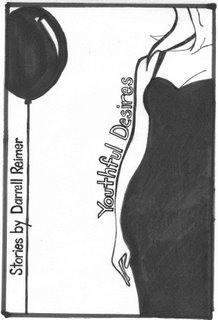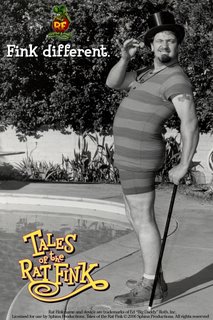“That should keep you busy!” So said the Post Office Lady, as she handed me my latest Amazon order. I laughed, and went on my way. I know what’s going on. There are quite a few “welfare dads” in our town; you could characterize their lifestyle as indolent, if not idyllic. The implication being made is that my own lifestyle differs chiefly in the latter quality.
Always with the Post Office Lady. Someday I’ll puff myself up and make a big, maudlin deal about the outrageous implications behind her jibes. Or maybe not. It’s fun to just wink and make like she doesn’t know the half of just how deliriously luxurious my lot in life has been. Which is true, as far as it goes.
At this point it is tempting for me to construct a line of distinction between me and the welfare dads, but honestly: there but for the Grace of God go I. And I don’t mind the local ribbing. I’d like to think my presence in this town is a pleasant bit of mischief. The Post Office Lady takes note of all the Amazon packages. The local women see me tending to my daughters, or hanging wash on the line, and nudge their hubbies in the ribs. The hubbies snort, and mutter, “He’s gotta be gay.” I give everyone a cheerful wave. They wave back. It’s all good.
The locals I can handle. My ancestors, on the other hand, are among the Great Cloud of Witnesses. And there are days when I could swear I feel them breathing down my neck.
My mother’s father was a pastor. He made a point of telling us grandchildren he had once been a very successful farmer, but he’d left all that behind when he answered
The Call. My mother tells us, with unmistakable displeasure, that he habitually followed that “call” and dragged the family with him into one sorry parsonage after another. He was a skillful carpenter, though, and my impression from my mother is that he and my grandmother would make a good go of the parsonage they were in. He was also an understated people person, and once everything (including the congregation) had more or less settled into an attractive spot, he’d swap situations with a pastor who was struggling in the woods, further afield. My mother was the oldest in the family, and has a keen recall of some of the marital strife this brought on.
John Prine’s carpenter-Grampa “built houses, stores and banks”; mine built houses, churches and apartment buildings. Those apartment buildings were important to him
— he was a landlord, too. More than once I overheard him tell my father those buildings stood as proof to the businessmen in our community that he wasn’t “just” a preacher. My father didn’t think the businessmen were in need of any such persuasion, but then it might not have occurred to him that my grandfather was probably fishing for a little affirmation
— from my father’s father.
My other grandfather was a banker. More accurately, he was a Credit Union manager, and he lived to see it become among the most successful banks on the continent. He came from a farming family, but as with most men of his era, he had a total disdain for blue-jeans. His gardening pants were dress pants that had seen better days, but didn’t look too
wehrklempt.
He had a sunny smile and a wicked sense of humor
— one I recall as being very Mennonite, taking enormous pleasure whenever some big-talker got put in his place. One anecdote he trotted out during the ritual family dinners regarded a pushy little loudmouth who was in the habit of bossing around his fellow workers, declaring that next to the boss-man, he was second-in-command. When the boss caught wind of this, he drove up and let the guy have it, declaring, “After me comes a long line of
nüescht. Dann chemst du.” (A long line of nothing
— then comes you.)
My siblings and I were the only grandchildren in the family, and he took us fishing (a high privilege, but I'll be happy if I never eat jackfish again). My last picture of him was taken on Boxing Day; he's with me and my brother, smiling and playing billiards in his basement. One hand is holding the cue, the other is uncharacteristically stuffed in his pocket. He had only partial use of that hand that day. He thought he might have suffered a stroke the night before. In fact, a tumor had grown in his brain, and he wasn’t going to live to see the summer.
I had thought the world of him before, but he was
such a beautiful man those last months of his life. He loved giving stuff away, and signing cheques. The fields he owned he sold for a song to the farmer that was renting them. He was told of my plans to ride a motorcycle around the continent that summer, and let everyone know what a grand idea he thought this was. I dream of him every spring, when the snow thaws and the water runs off the fields into the ditch.
But, man: A long line of
nüscht — dann chemst du.
There remains in me the deep impulse to prove myself to others that I’m not just … what? … the stay-at-home parent, the scribbler, the “kept man” who does a little housework, but otherwise fiddles and blogs. And there is an impulse on my father’s side of the family to locate and appreciate, albeit ironically, those members of the family tree whose earthly achievements are suspect. An overwhelming “work ethic” dogs this family. So does depression.
Unlike my mother’s father, I am not a carpenter. I once accepted a friend’s invitation to help him finish his basement. When everything was done, my friend clapped me on the shoulder and informed me that God had blessed me with two left hands.
I am not a farmer. When I was in my teens, my parents arranged for me to summer at my aunt and uncle’s farm. I hope I helped out a bit, but the older I grew, the more I realized just how hopelessly out-of-sync my thinking was with even the most casual farmer.
 |
| Protected prairie grasslands: all that arable soil, going to waste. |
I am not a banker or a businessman
— I don’t have the flint for it. We’ve got a neighbor using our shed for storage. I should be charging him rent, but I can’t bring myself to do it
— he’s fallen on hard times. He’s also amazing with drywall and plaster, and has done some terrific work in our house. He’d like to think we’re pretty much square, but anyone with the slightest business-sense would vehemently beg to differ.
I’m told one of my forebears (five generations down the line, I think) was widely regarded as a lost cause. He married a real go-getter, though, and she single-handedly kept their ever-growing family clothed and fed. The locals, and eventually his own children, referred to him as “
Fühla” (take a wild guess what that might mean). He had no trade to speak of, but Mennonite historians love him. Apparently he walked around town, took note of what was going on, then went home and wrote it all down in his journal.
The current guess is he was depressive, but I wonder. He and his wife had an average of one child a year for twelve years
— did the sun only shine for the two of them once a year? Did he not make his wife laugh? Is it possible the two of them recognized and chafed at the absurd “
Dann chemst du” posturing of their peers? Or could it be the only thing he was confident of was his ineptitude?
His children became disdainful
— of that I am painfully aware.
There is laundry to be done today, along with dusting and vacuuming. Throw in the after-school homework agenda, and supper (roasted chicken with wild rice and vegetables)
— along with this posting
— and I’ve just managed to fill my day.
But I’ll be wondering if it isn’t more important to prove myself to my children than it is to prove myself to myself
— or others. For better and for worse, it will be my children who return the favor.























